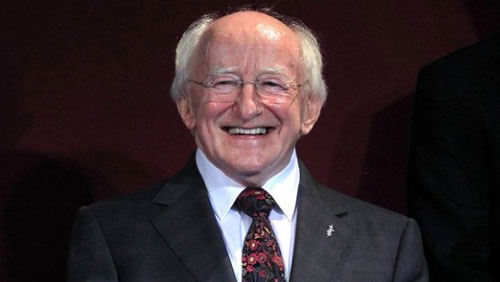The president of Ireland, Michael D. Higgins, doesn’t believe that sports and gambling need to share the same space. In an interview with RTE Radio One for its Sunday Sport broadcast, the septuagenarian leader indicated that he would approve legislation banning gambling advertising at all sporting events in the country.
 Higgins went on to say that he believes that sports should be protected from gambling companies, arguing that sports gambling addiction over the past several years has reached epidemic proportions. He said, “The often-secret addiction has grown in sport in recent years—and a number of high profile sports people have talked about their stories of addiction. I just think [sport] should be protected from it. There is no one being heavy about it. What you can do is through education obviously, through the school systems.
Higgins went on to say that he believes that sports should be protected from gambling companies, arguing that sports gambling addiction over the past several years has reached epidemic proportions. He said, “The often-secret addiction has grown in sport in recent years—and a number of high profile sports people have talked about their stories of addiction. I just think [sport] should be protected from it. There is no one being heavy about it. What you can do is through education obviously, through the school systems.
“As well as that, we do need, and it’s not for me as President [to do something] as I’m no influence except to say what I think, is that the integrity of sport means having care for everyone who participates. Having care for everyone who participates means not exposing them when in fact they are vulnerable. How you deal with vulnerabilities is by preparing them of course.
“But you can’t do everything through education. For too long in Ireland we often ignore problems that are staring us in the face.”
Gambling hasn’t just become an issue with fans, either. Ireland’s Gaelic Athletic Association (GAA) saw 77 players request counselling in 2017, of which 15% admitted to be addicted to gambling. The GAA recently voted to ban all sponsorships that are related to gambling companies; however, other associations, such as the Premier League, still allow gambling-related sponsorships. Gambling companies account for nine of the shirt sponsors in the league.
Bookmakers have called the push to ban gambling-related advertising in sports not practical, given how closely sports and gambling are linked. Many have already begun to offer addiction programs. They also feel that targeting ads will not, in itself, stop the problem, and the practice needs to be part of a broader program designed to tackle addiction.